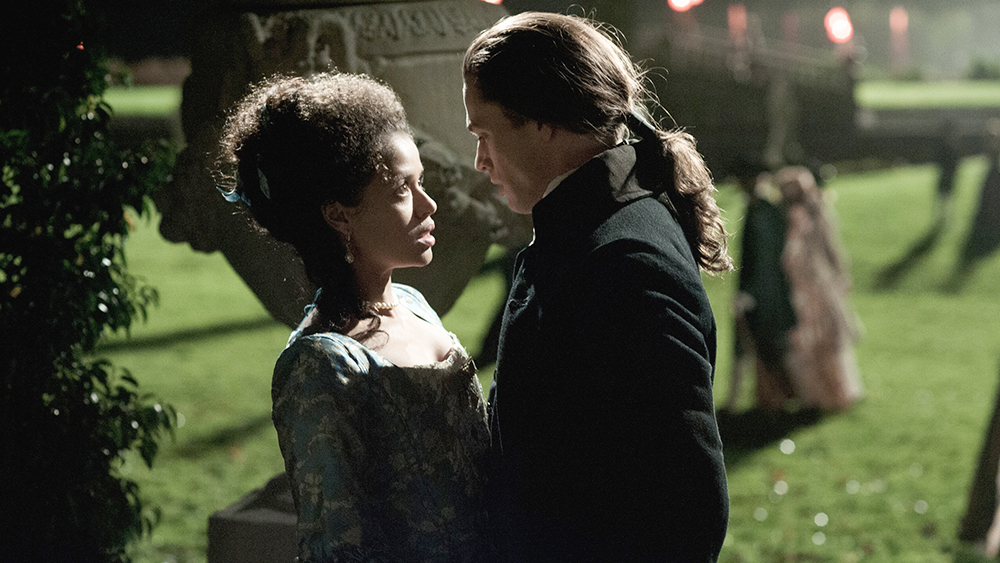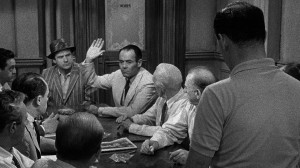
Reviewed for the Miami International Film Festival.
Many a period piece depict decadent palaces as constricting locations, but none showcase the limitations of this world for a woman quite as well as Belle. Amma Asante’s sophomore feature doesn’t simply give us the perspective of your average woman-with-social-status like, say, Sofia Coppola did with Marie Antoinette. This is a work with a mixed-race protagonist, and it’s one that proudly proclaims that she deserves the same amount of happiness and love that an Austen character does. Belle isn’t just your average period drama; it’s a fine work of art that addresses both its romantic narrative and its heavy, racially-fueled, historical content with the grace and tact it deserves.
There isn’t a lot in history about Dido Elizabeth Belle, the daughter of an admiral and enslaved woman who was brought up as a gentlewoman by her great-uncle, the Lord Chief Justice of England and Wales. This is an unsurprising fact considering the upper-class English is always being depicted by the whitest people around, but writer Misan Sagay and director Asante have clearly prioritized investigating as much as possible about the way of living for a woman in as special a situation as her’s. It never shies away from depicting the cold reality that she is more than a slave, but less than a white legitimate child; never allowed to dine with guests, only permitted to join them in the drawing-room post-meal. Regardless, the script presents an intelligent young woman who understands the reality of her situation, but constantly attempts to question the role she plays in this family where she only sometimes feels she belongs. It’s those bits of insecurity that make her the woman she is, that make her more than a character lost in history books long ago. Well, that and a wonderful performance by lead actress Gugu Mbatha-Raw.
Creating a young woman who feels as strongly as she does is something a period piece needs in order to thrive. One of the most impressive features of Belle is just how much importance it gives the notion of feeling comfortable in one’s own skin. Scenes where Dido reflects on how people with dark skin are treated are how the film ties her growth as a black woman in a white world to the ongoing fight against slavery in the UK. It’s painful to watch her hit herself in front of the mirror for not being like the women who surround her, to watch a man assault her because of her skin; it’s scenes like this that impact the viewer. “I don’t know that I find myself anywhere,” she admits, and considering the paintings that constantly depict any woman of color as beneath the white woman, it’s no surprise that she finds herself constantly conflicted with her place in the world. As much as her wealth and gorgeous period garb — always dressed to the nines in pastel colors and floral designs — keep her above the status of a slave or housemaid, she still faces an overwhelming amount of racism from those not in her familial circle, as well as reinforcement of the notion that she is not worth as much as her white cousin would be to a suitor.
But her race does not exclude her from the wonderful things in life that women in period pieces are allotted. Dido is allowed the romantic narrative she deserves, presented in typical Jane Austen fashion; with hidden meetings, sparks of jealousy, sensible women, prideful men, and broken engagements all present. It’s not exactly an unpredictable narrative, but it’s surprisingly refreshing in an era where women of color are always dealt a hand full of tragedy. It’s about time a young black girl had a romantic period film to look up to, with a handsome young abolitionist lawyer and a grandiose score by Rachel Portman to sweep its leading lady off her feet. As effective as the love story proves to be though, its a smaller portion of a work with much greater ambitions. At the heart of this tale of racism and romance lies the true intention of Belle: to depict the life of a young woman who refuses to compromise her own self-worth and strives for a life with people who love and respect her regardless of her skin color and social standing.
—
Belle is currently available for rental or purchase on Amazon Instant Video.
Directed by Amma Asante; written by Misan Sagay; starring Gugu Mbatha-Raw, Tom Wilkinson, Matthew Goode, Emily Watson, Sam Reid, Tom Felton, Sarah Gadon, Miranda Richardson, James Norton, and Lauren Julien-Box; 105 minutes.



 Derek
Derek
 Isabelle
Isabelle